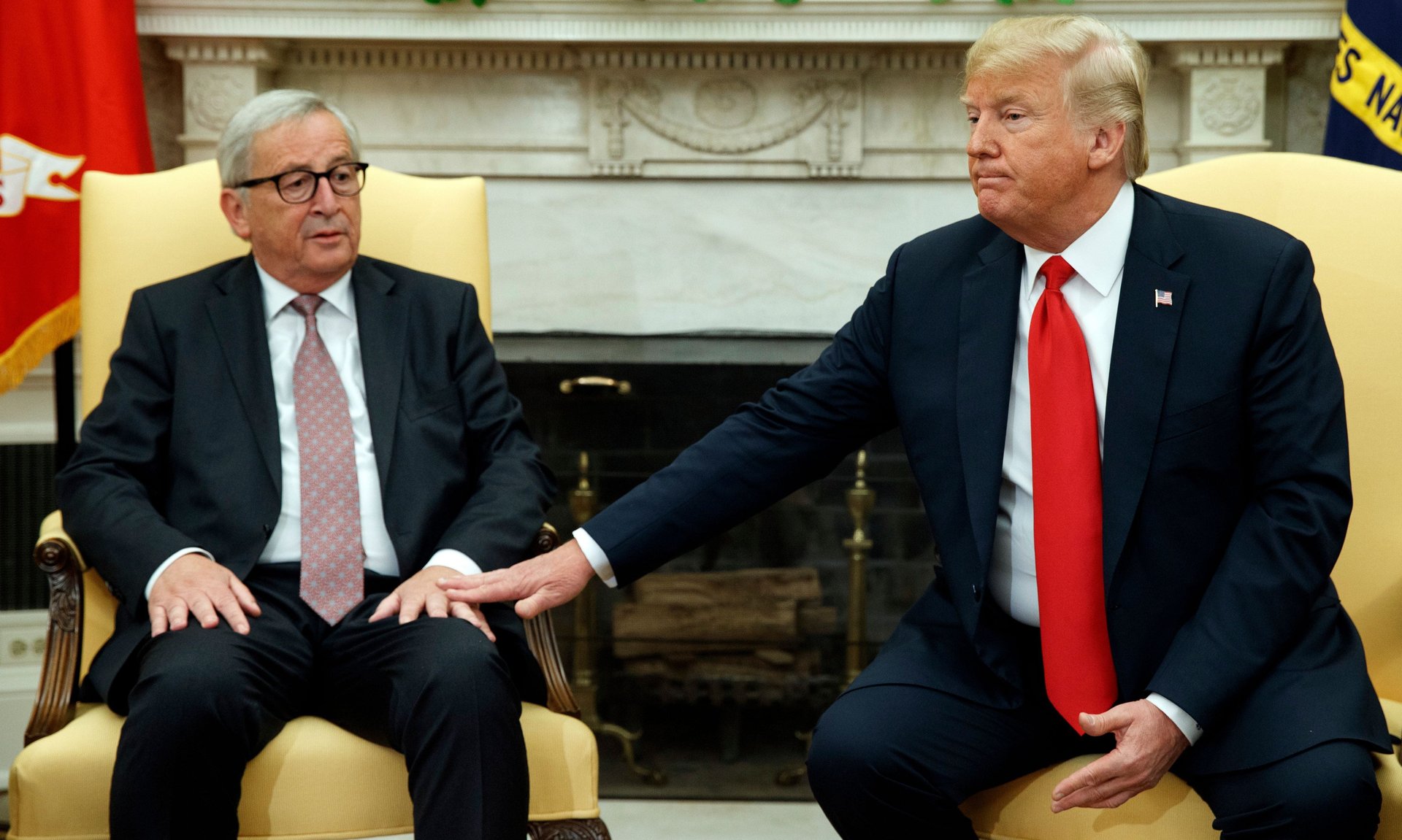“We made a deal today!” said Juncker and Trump. But what was actually agreed?
Donald Trump and European Commission president Jean-Claude Juncker agreed to put the EU-US trade war on hold in a hastily-called press conference in the Rose Garden today. After weeks of nasty remarks about Europeans cheating the US on trade, Trump spoke briefly about the “close friendship” that both sides share. “We made a deal today!” Juncker said.


Donald Trump and European Commission president Jean-Claude Juncker agreed to put the EU-US trade war on hold in a hastily-called press conference in the Rose Garden today. After weeks of nasty remarks about Europeans cheating the US on trade, Trump spoke briefly about the “close friendship” that both sides share. “We made a deal today!” Juncker said.
But what, exactly, was agreed? That’s harder to say. The two sides have identified “a number of areas in which to work together,” Juncker said. He said those areas include working toward “zero tariffs on industrial goods,” reforming the World Trade Organization, and more EU imports of US soybeans and liquified natural gas. Trump said the two had agreed to work toward “zero tariffs, zero non-tariff barriers, and zero subsidies on non-automotive goods.”As they work toward these things, the US will suspend the tariffs it imposed on steel and aluminum imports, and the EU will agree not to add new tariffs, they said. They didn’t take questions from reporters.
“The statement that Europe will increase imports of US liquified natural gas and soybeans needs to have the word ‘eventually’ in front of it,” said Edward Goldberg, a professor at New York University’s Center for Global Affairs. In terms of liquified natural gas, the US does not have enough processing plants to increase demand immediately, Goldberg said. And when it comes to soybeans, the EU has long-standing relationships with Brazil and Argentina.
The vague deal leaves the US and EU essentially back to where they were during the Barack Obama-era, trade-wise, when both sides spent years mired in discussions about the “TTIP,” or Transatlantic Trade and Investment Partnership. The massive deal’s goal was to remove trade barriers between the two parties, but because tariffs are already low between the EU and the US, the negotiations were mostly centered on harmonizing regulations and standards.
The talks cratered in August 2016, under enormous pressure from EU citizens who feared lax health and safety standards and weak environmental protections. The American practice of washing chicken parts in a mild chlorine bath was one particular sticking point. As president, Trump has slashed regulations for US companies, making the prospect of any “free trade” deal with the EU seem even less likely now.